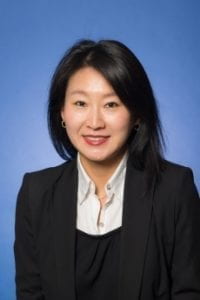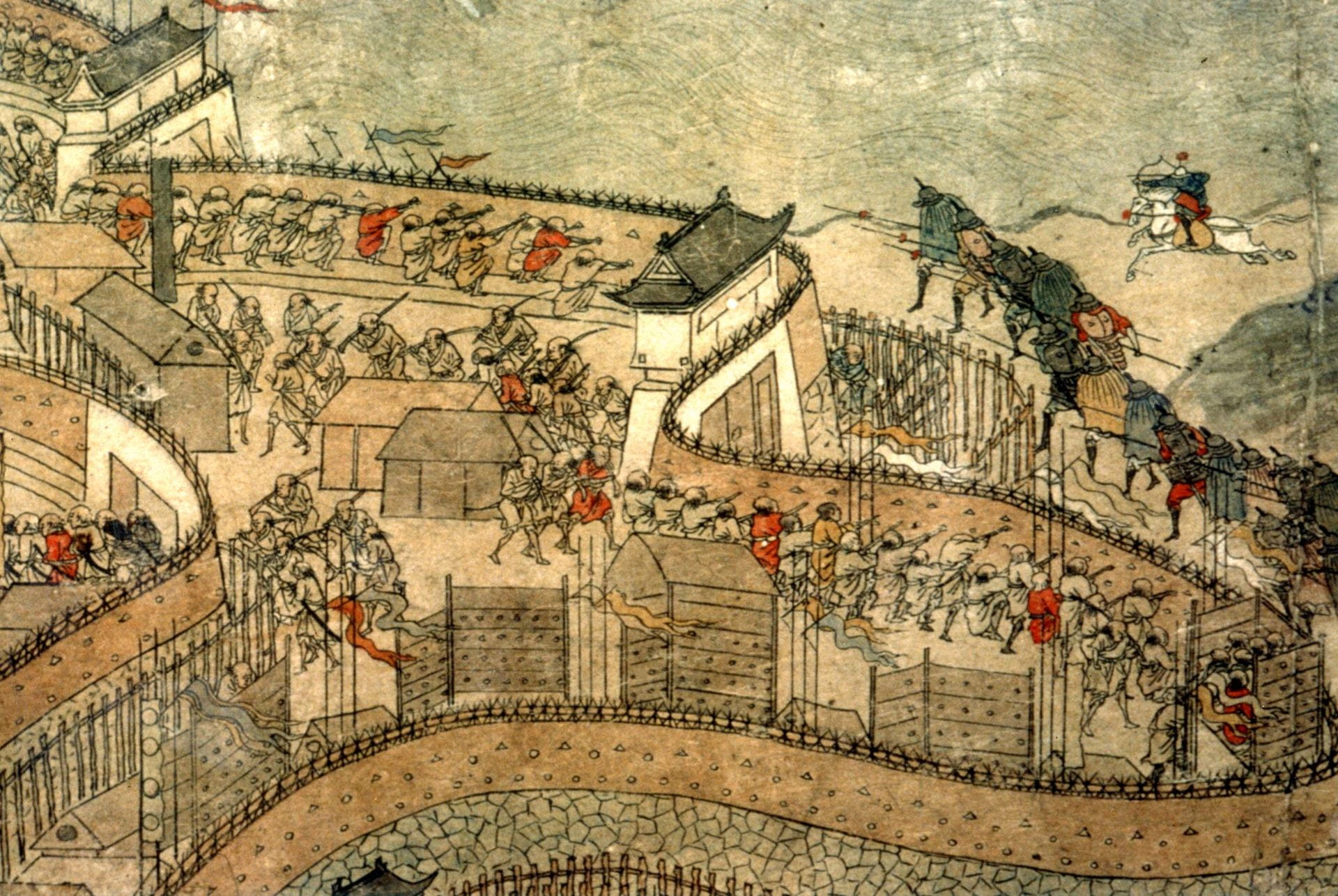Soh Jaipil Lecture Series
Speaker
Nam-lin Hur, Professor, the University of British Columbia
Moderator
Jisoo M. Kim, Director, GW Institute for Korean Studies
Date & Time
Friday, November 20, 2020
3:00 p.m. – 4:30 p.m.
Virtual Event
Event Description
Within three weeks of the invasion, the Japanese took Hansŏng, the capital of Chosŏn, and King Sŏnjo fled to the north. Japan’s sudden invasion dealt a blow of life or death to the dynasty King Sŏnjo had inherited. Seven years later, Japan’s invader regime gave up the war without achieving anything and, two years later, it collapsed. Ming China which sent a rescue force to Korea suffered heavy casualties and financial losses. A few decades later, it also collapsed. But the Chosŏn dynasty survived and enjoyed longevity for three more centuries. The war unfolded in Korea only. What helped the Chosŏn dynasty survive the crisis? The avenues of Chosŏn Korea’s survival were two: military and diplomatic. In this talk, Hur examines the ways in which the military avenue contributed to the survival of the Chosŏn dynasty. From the beginning to the end, King Sŏnjo was determined to destroy the Japanese invaders even though his country’s military capability was not a match. In 1592, the most critical year, Chosŏn Korea had already been able to frustrate Hideyoshi’s goals far before Ming China committed a large rescue force. In 1593, Ming China, which failed to strike the Japanese out, sought a negotiated settlement to the war to 1596, but to no avail. In 1597 the Japanese resumed a massive attack on the Chosŏn, and the Ming sent a larger force. The Ming force depended on supplies which the Chosŏn procured (to a great extent) and transported to the front. How was Chosŏn Korea able to do the job that contributed to frustrate the Japanese? In answering these questions, Hur pays attention to the modus operandi of Chosŏn Korea’s governance.
Speaker
 Nam-lin Hur (Ph.D., Princeton) is a professor in the Department of Asian Studies, The University of British Columbia. His teaching focuses upon premodern Japanese history and international relations in premodern East Asia. His major publications include: Prayer and Play in Late Tokugawa Japan: Asakusa Sensōji and Edo Society (Harvard University Asia Center, 2000); Death and Social Order in Tokugawa Japan: Buddhism, Anti-Christianity, and the Danka System (Harvard University Asia Center, 2007); “National Defense in Shambles: Wartime Military Build-up in Chosŏn Korea, 1592-98,” Seoul Journal of Korean Studies 22/2 (2009); “The Celestial Warriors: Ming Military Aid and Abuse during the Korean War, 1592-98” in The East Asian War, 1592-1598: International Relations, Violence, and Memory (Routledge, 2015); and “Toyotomi Hideyoshi’s Invasion of the Chosŏn Kingdom, 1592-1598” in Oxford Research Encyclopedia of Asian History (Oxford University Press, 2019). Currently, Hur is writing a book on Japan’s invasion of Chosŏn Korea in 1592-1598 and Ming China’s involvement.
Nam-lin Hur (Ph.D., Princeton) is a professor in the Department of Asian Studies, The University of British Columbia. His teaching focuses upon premodern Japanese history and international relations in premodern East Asia. His major publications include: Prayer and Play in Late Tokugawa Japan: Asakusa Sensōji and Edo Society (Harvard University Asia Center, 2000); Death and Social Order in Tokugawa Japan: Buddhism, Anti-Christianity, and the Danka System (Harvard University Asia Center, 2007); “National Defense in Shambles: Wartime Military Build-up in Chosŏn Korea, 1592-98,” Seoul Journal of Korean Studies 22/2 (2009); “The Celestial Warriors: Ming Military Aid and Abuse during the Korean War, 1592-98” in The East Asian War, 1592-1598: International Relations, Violence, and Memory (Routledge, 2015); and “Toyotomi Hideyoshi’s Invasion of the Chosŏn Kingdom, 1592-1598” in Oxford Research Encyclopedia of Asian History (Oxford University Press, 2019). Currently, Hur is writing a book on Japan’s invasion of Chosŏn Korea in 1592-1598 and Ming China’s involvement.
Moderator
 Jisoo M. Kim is Korea Foundation Associate Professor of History, International Affairs, and East Asian Languages and Literatures and Director of the Institute for Korean Studies at GW. She also currently serves as Editor-in-Chief of the Journal of Korean Studies. She is a specialist in gender, law, and emotions in Korean history. Her broader research interests include gender and sexuality, crime and justice, forensic medicine, literary representations of the law, history of emotions, vernacular, and gender writing. She is the author of The Emotions of Justice: Gender, Status, and Legal Performance in Chosŏn Korea (University of Washington Press, 2015), which was awarded the 2017 James Palais Prize of the Association for Asian Studies. She is also the co-editor of The Great East Asian War and the Birth of the Korean Nation by JaHyun Kim Haboush (Columbia University Press, 2016). She is currently working on a book project tentatively entitled Sexual Desire, Crime, and Gendered Subjects: A History of Adultery Law in Korea. She received her M.A., M.Phil., and Ph.D. in East Asian Languages and Cultures from Columbia University.
Jisoo M. Kim is Korea Foundation Associate Professor of History, International Affairs, and East Asian Languages and Literatures and Director of the Institute for Korean Studies at GW. She also currently serves as Editor-in-Chief of the Journal of Korean Studies. She is a specialist in gender, law, and emotions in Korean history. Her broader research interests include gender and sexuality, crime and justice, forensic medicine, literary representations of the law, history of emotions, vernacular, and gender writing. She is the author of The Emotions of Justice: Gender, Status, and Legal Performance in Chosŏn Korea (University of Washington Press, 2015), which was awarded the 2017 James Palais Prize of the Association for Asian Studies. She is also the co-editor of The Great East Asian War and the Birth of the Korean Nation by JaHyun Kim Haboush (Columbia University Press, 2016). She is currently working on a book project tentatively entitled Sexual Desire, Crime, and Gendered Subjects: A History of Adultery Law in Korea. She received her M.A., M.Phil., and Ph.D. in East Asian Languages and Cultures from Columbia University.


